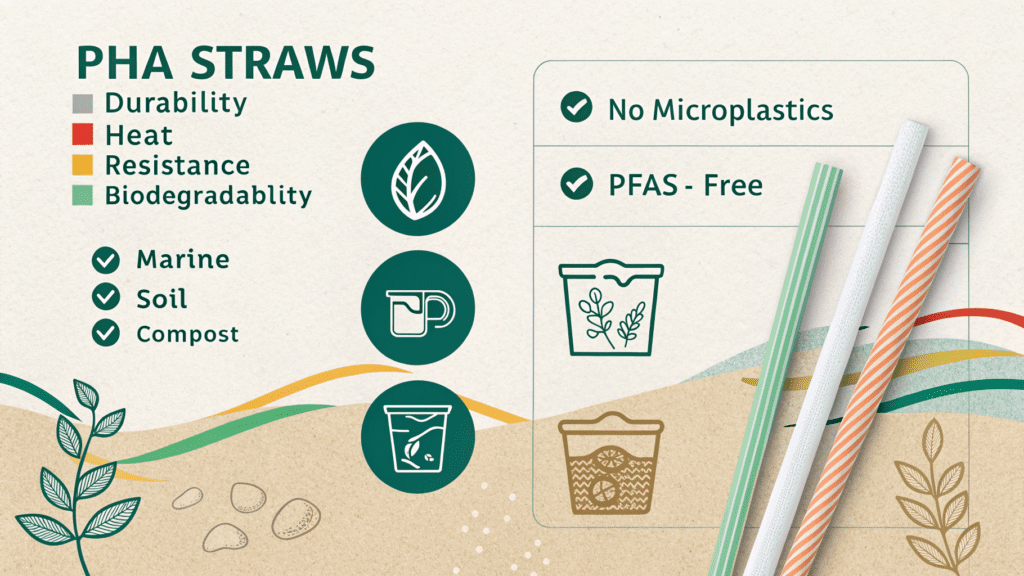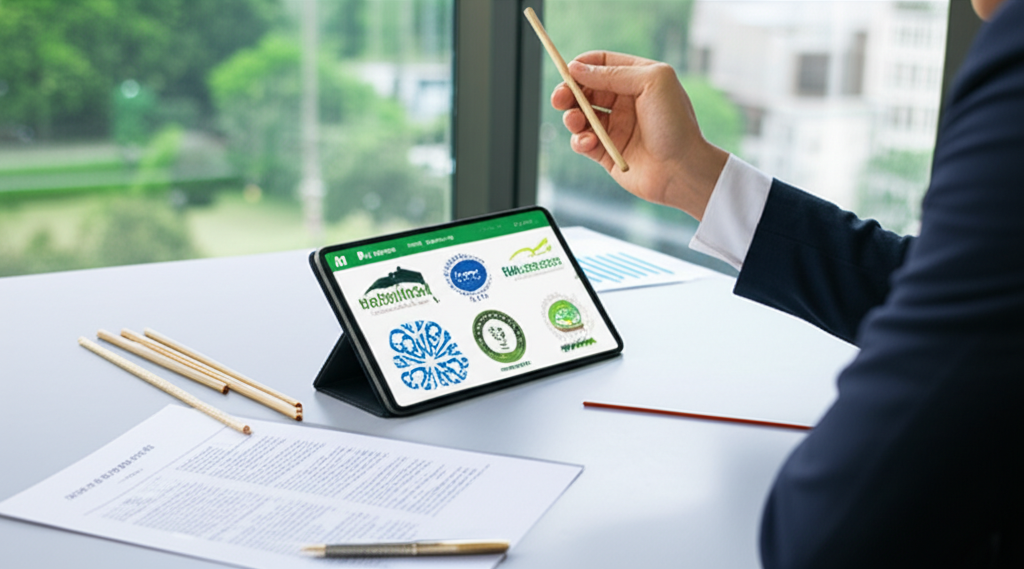The Imperative for Sustainable Solutions: Why Your Business Needs Compostable Straws Now
The shift away from single-use plastics isn’t just an environmental trend; it’s a critical business imperative. Across industries, from foodservice to hospitality, the pervasive presence of plastic straws contributes significantly to global waste, jeopardizing marine ecosystems and, perhaps more immediately, tarnishing brand perception. Businesses are no longer merely advised to go green; they are compelled by a confluence of evolving regulations, surging consumer demand, and a clear market opportunity.
Governments worldwide are implementing stringent plastic bans and restrictions, making compliance a critical operational and legal concern. From the unified Single-Use Plastics Directive in the European Union to a growing patchwork of state and local regulations across the United States, businesses face potential fines and market access limitations if they fail to adapt. But beyond the stick, there’s a powerful carrot: modern consumers are unequivocally demanding sustainable options. Research indicates that over 70% of consumers prefer sustainable brands, actively seeking out businesses that align with their eco-conscious values. This isn’t just about good optics; it’s about fostering deep customer loyalty and meeting escalating corporate social responsibility (CSR) initiatives that are reshaping procurement policies. The market itself underscores this urgency: the broader eco-friendly straws market is projected to reach USD 12.3 billion in 2025, expanding to a remarkable USD 25.1 billion by 2035, signaling a robust and expanding sector ripe for B2B investment.

Moving beyond mere compliance, adopting advanced compostable straws can significantly enhance brand reputation, cultivate customer loyalty, and build operational resilience against future regulatory changes. This isn’t just about avoiding penalties; it’s about seizing a strategic advantage. The global compostable straws market, specifically, is projected to grow from USD 1.9 billion in 2025 to USD 3.8 billion by 2035, demonstrating a healthy 7.1% Compound Annual Growth Rate (CAGR). The foodservice sector, accounting for a dominant 52.8% market share, leads this transformation, driven by major fast-food chains like McDonald’s and Starbucks transitioning to eco-friendly alternatives. North America, with the U.S. anticipated to experience a 7.5% CAGR, and Europe, with strong growth and over 30% market share, are at the forefront of this shift.
While earlier compostable options, particularly some paper straws, faced challenges with sogginess or imparting a taste, significant material innovations in 2025 have fundamentally addressed these performance issues. The latest advancements in compostable materials are redefining straw performance, now offering durability and user experience comparable to, or even exceeding, traditional plastics. Crucially, new generations of compostable straws are developed to be free of harmful PFAS, the “forever chemicals” that plagued some earlier eco-friendly alternatives, ensuring both health and environmental safety. These cutting-edge materials contribute to a true circular economy, reducing landfill burden and marine pollution by breaking down naturally, often enriching the soil.

For B2B buyers, understanding the distinct characteristics of leading compostable straw materials is paramount to aligning with your specific operational needs and sustainability goals. Each material offers unique advantages:
- The Gold Standard: PHA (Polyhydroxyalkanoates) Straws: Mimicking traditional plastic in look, feel, and performance, PHA straws offer exceptional durability, even at temperatures up to 100°C (212°F). They are certified biodegradable in industrial compost, home compost, soil, and marine environments, leaving no microplastics. Companies like Good Start Packaging offer PHA straws that are certified BPA-free and food-safe.
- The Circular Economy Choice: Sugarcane Bagasse Straws: Made from agricultural byproducts, these straws are often 100% PLA-free, non-toxic, and taste-neutral. They are home compostable (typically in 3-6 months) and highly durable, resisting sogginess for up to 24 hours. Learn more about their benefits for your business by exploring Momoio Sugarcane Straws.
- The Widely Adopted Option: PLA (Polylactic Acid) Straws: Derived from renewable plant-based materials like corn starch, PLA straws are strong and rigid, making them ideal for cold drinks. They require industrial composting facilities for effective breakdown (typically 3-6 months) and are commonly BPI/FDA certified. Goecopac’s PLA Straws, for instance, are BPI/EN13432 certified for bulk orders.
- Natural Alternatives: Wheat, Agave, and Reed Straws: Crafted from natural plant stems, these options are gluten-free, never soggy, and suitable for both hot and cold beverages. They are 100% biodegradable and compostable, decomposing in a few months without leaving toxic traces. HAY! Straws (wheat) and Greenprint (agave) are notable for their certified and durable offerings.
To assist in your strategic material selection, consider this comparative analysis:
| Feature/Criteria | PHA (Polyhydroxyalkanoates) | Sugarcane Bagasse | PLA (Polylactic Acid) | Paper (Modern, High-Quality) |
|---|---|---|---|---|
| Look/Feel | Like traditional plastic, smooth | Natural texture, sturdy, smooth | Rigid, like plastic | Smooth, but can feel fibrous |
| Durabilità | Excellent, retains integrity | Excellent, resists sogginess >24 hrs | Good, rigid for cold drinks | Improved, but may soften over time |
| Temperature Range | Hot & Cold (up to 100°C / 212°F) | Hot & Cold (up to 90°C) | Cold (some up to 80°C / 176°F) | Cold (some hot applications) |
| Compostabilità | Home, Industrial, Marine degradable | Home, Industrial (3-6 months) | Industrial (3-6 months) | Industrial (30-60 days) |
| Chemicals (PFAS) | Generally PFAS-free | 100% PLA-free, chemical-free, non-toxic | May contain PFAS (material dependent) | High risk of PFAS contamination |
| B2B Advantage | Max versatility, true eco-performance | Upcycled material, robust, natural | Cost-effective for cold, widely available | Broad recognition, basic compliance |
Beyond the choice of material, selecting the right supplier is equally critical. Insist on reputable certifications like BPI, TÜV OK Compost (Industrial/Home), ASTM D6400/D6868, USDA BioPreferred, and FDA approval to ensure genuine compostability and food safety. Many suppliers offer customization and branding opportunities, allowing for custom lengths, diameters, colors, and logo printing on straws or wrappers to amplify your brand’s aesthetic and sustainability message. Always inquire about wholesale pricing, minimum order quantities (MOQs), and free shipping options to optimize cost savings for large-scale operations. Finally, choose suppliers who demonstrate ethical sourcing and production transparency, verifying responsible energy, water, and waste management practices. For more on this, consider readingMomoio’s guide to sustainable sourcing.

Future-proof your business by embracing sustainable innovation today. Aligning with eco-conscious practices and utilizing certified compostable straws positions your business as a leader in sustainability, attracting and retaining the growing segment of environmentally aware consumers. Proactive adoption helps you meet environmental, social, and governance (ESG) targets and ensures readiness for future regulatory shifts, avoiding potential fines and securing market access. For instance, the EU’s Single-Use Plastics Directive has already set a clear precedent, while US regions are following suit with bans and restrictions. Investing in high-performance compostable straws not only enhances customer satisfaction with durable, taste-neutral options but also streamlines procurement and waste management processes. Discover the full range of sustainable products available atMomoio Packaging Solutions.

Your next step towards a greener, more profitable future is clear.
Request a Consultation with Our Sustainability Experts
For further insights into the global movement towards sustainability, explore resources from organizations like theUnited Nations Environment Programmeor dive into market trends fromFuture Market Insights. Understanding international certification standards is also vital; a good starting point is theBiodegradable Products Institute (BPI) website.






